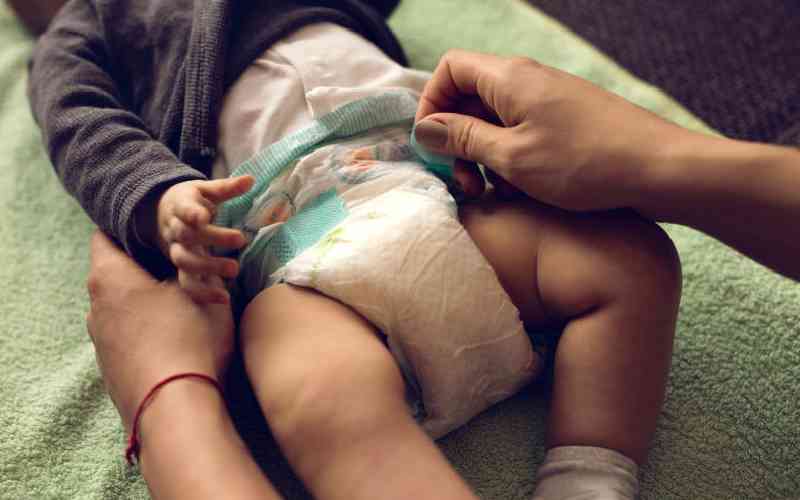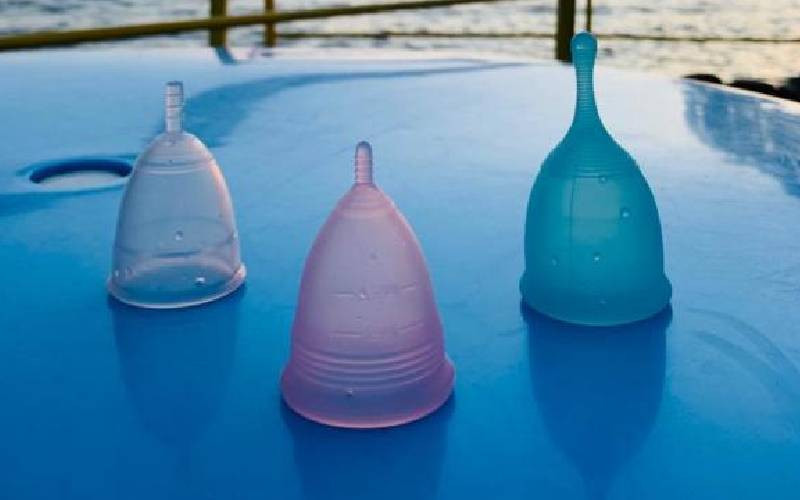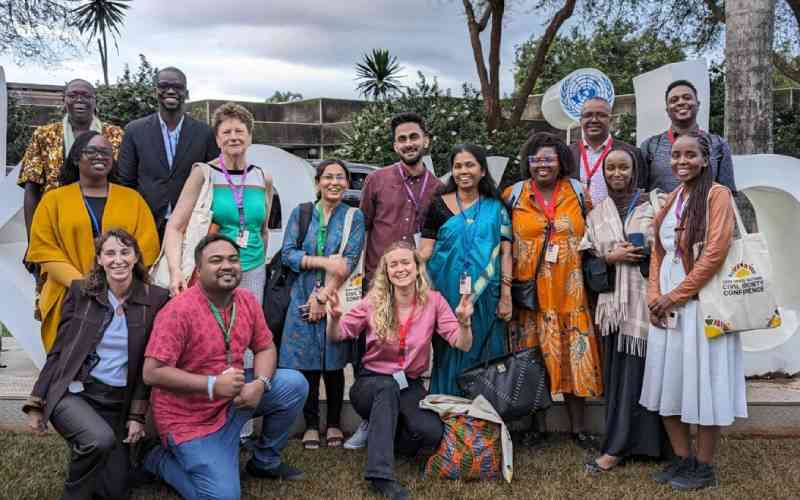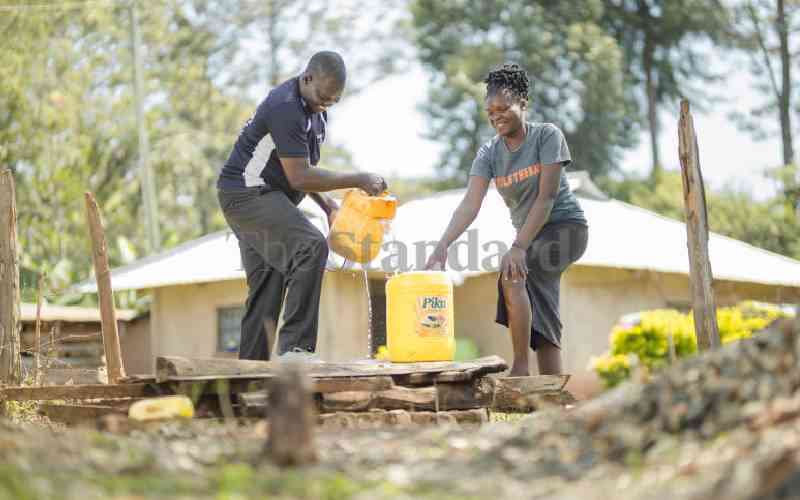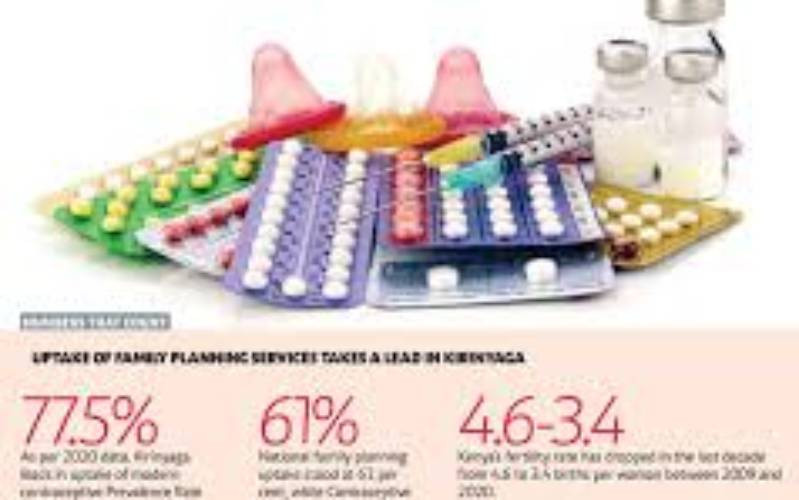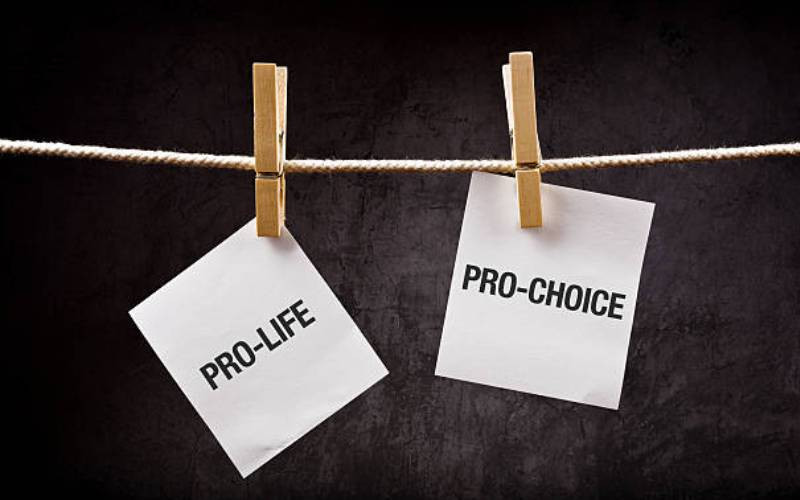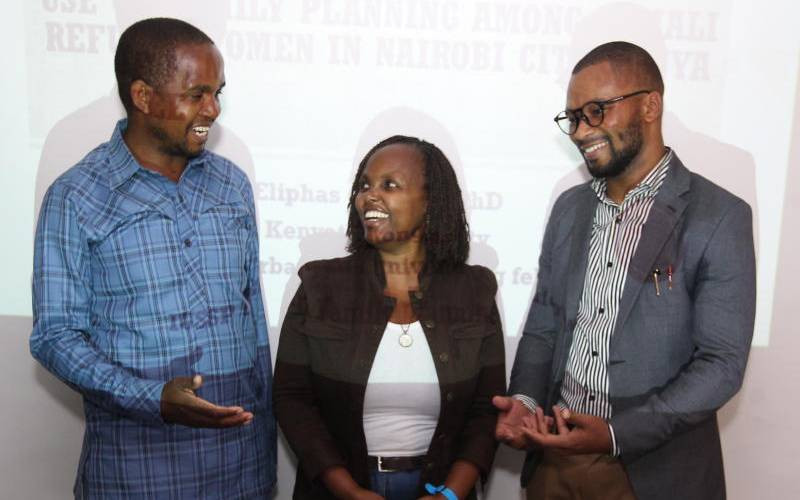
As we are led through the crowded Majengo slums in Kamukunji constituency, we meet a young Somali refugee woman sheltering in a ramshackle structure made of iron sheets that had started to rot away.
As she ushers us in, we can tell she is hungry, her newborn crying incessantly. Two boys aged 2-3 years are in deep sleep.
"For the last two days, I have not cooked anything in this house. My baby wants to be fed but there is no milk for her to suckle. I even don't have money to buy milk for her," says Leila Maimuna (not her real name).
We opt to buy her and the children breakfast before sitting down for an interview. Curious, we inquire about her husband's whereabouts and she says they divorced a month after he discovered that she took up family planning services to avoid unwanted pregnancies.
"I was living in the Daadab refugee camp and my husband was a social worker at the camp. When I was just 19 years old, we got married and moved to Nairobi after he secured a well-paying job and within four years, we had three children," says Maimuna.
- Unspoken struggle of bedwetting as an adult
- Fertility myths set couples up for failure, disappointment
- Despite the pain and rejection, endometriosis has made me stronger
- Why women aren't lining up for life-saving screening, vaccine
Keep Reading
She narrates that she pleaded with her husband to allow her to seek family planning services but he refused. She then secretly visited a facility and had a contraceptive implanted in her arm. When her husband discovered what she had done, he accused her of infidelity and kicked her and the children out of their home.
Maimuna is among many Somali refugee women living in Nairobi who are suffering silently as decisions over their sexual reproductive health have to be made by their husbands. In Somali culture, going for family planning is considered 'immoral', and 'haram'.
A study dubbed 'Utilization of Modern Family Planning among married Somali Refugee Women aged 15-39 years in Nairobi City' found out that only a quarter of urban refugees use family planning services where majority of them take it secretly. The study was carried out by Dr Eliphas Gitonga from Kenyatta University.
The details are contained in data from a household survey of 2021. The sample released recently consisted of 605 married Somali refugee women aged 15-39 years.
The study was conducted in Kamukunji, Embakasi, and Ruaraka sub-counties. It is estimated that 65 per cent of the Eastlands households are occupied by the Somali community. Kamukunji Sub County contributed a higher proportion of respondents (54.2 per cent) than Embakasi (38.5 per cent), while Ruaraka contributed a small proportion (7.3 per cent).
Respondents from informal settlements made up slightly more (55.3 per cent) than those from formal settlements (44.7 per cent) and most of the participants had primary education (38.4 per cent), with a minority having tertiary education (8.9 per cent). Most of the participants (47.4 per cent) main source of income was business, with a few (5.1 per cent) relying on relief.
The Somali community in Nairobi is a blended one in that it constitutes indigenous Kenyans from North Eastern Kenya and refugees of different ages from Somalia and Ethiopia.
From the research, a paltry 26.5 per cent of Somali refugee women had adopted family planning services and the most commonly used methods are Depo-Provera (injectables) at 33.3 per cent, daily pill (24 per cent) and implants at 23.8 per cent and the majority of them prefer short family planning methods.
From the sampled population, the factors associated with the uptake of family planning services depended on the area of residence, age group, religious beliefs, community beliefs, perception of being a community misfit, information on family planning, husband approval and peer approval.
"We found out that the reproductive health of refugees is vulnerable due to poor living conditions and prohibitive health policies. It is worsened by sexual violence and restricted access to family planning services resulting in repeated high-risk pregnancies, HIV/AIDS, sexually transmitted infections, and unsafe abortions," said Dr Gitonga.
 The Standard Group Plc is a multi-media organization with investments in media platforms spanning newspaper print
operations, television, radio broadcasting, digital and online services. The Standard Group is recognized as a
leading multi-media house in Kenya with a key influence in matters of national and international interest.
The Standard Group Plc is a multi-media organization with investments in media platforms spanning newspaper print
operations, television, radio broadcasting, digital and online services. The Standard Group is recognized as a
leading multi-media house in Kenya with a key influence in matters of national and international interest.

